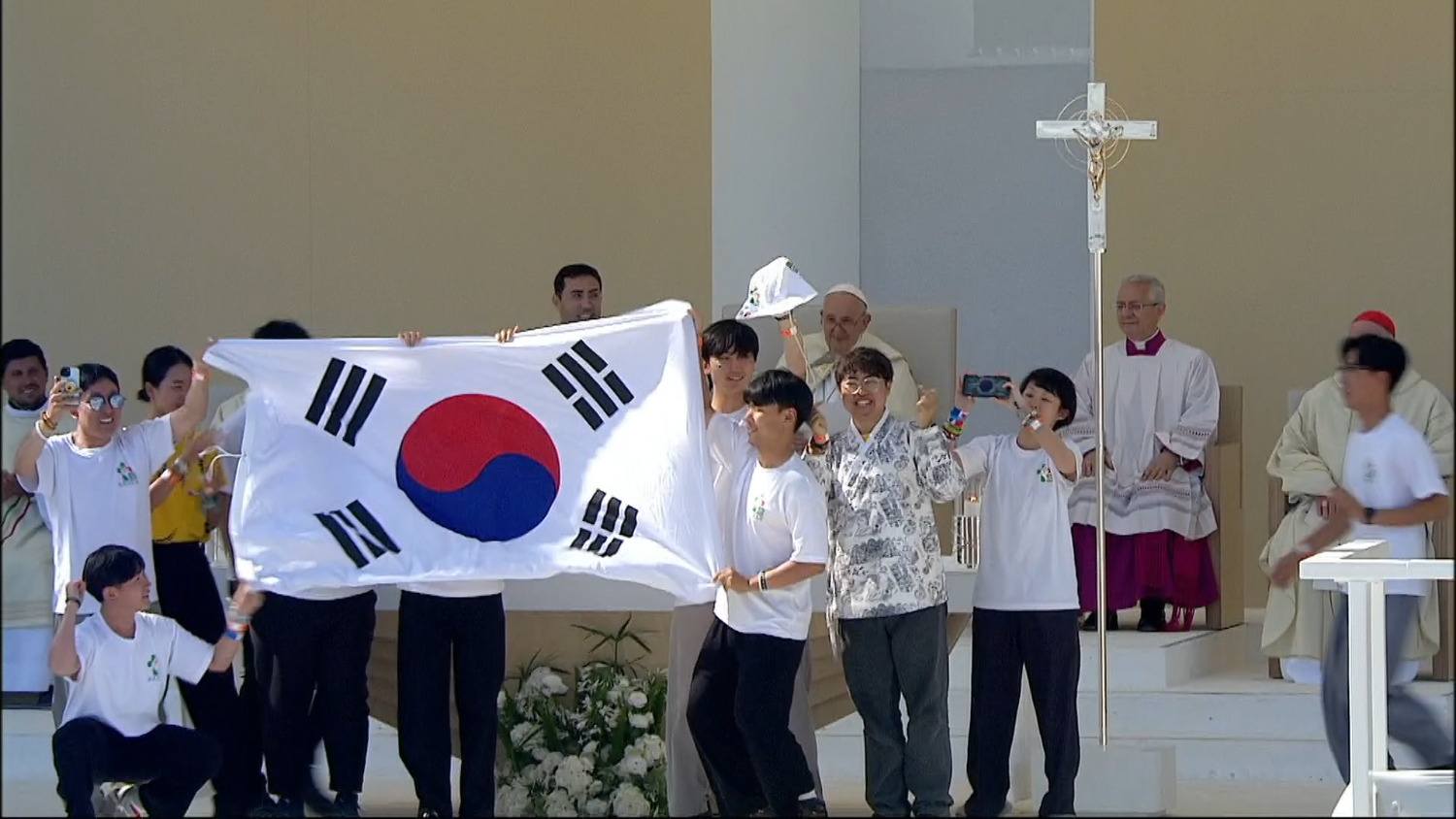Joy in Seoul: WYD an opportunity for peace and fraternity in Asia (and North Korea)
The next WYD will see Asia’s Catholic Church resume normal activities after the pandemic (and the cancellation of Asian Youth Day in India in 2020). Contacts between the Vatican and South Korea have already begun, ahead of an event that can boost the GDP of the host country. Young South Koreans travelling home from Portugal are full of enthusiasm. With the coming edition, hope is possible for a "spring of peace on the Korean peninsula".
Seoul (AsiaNews) – South Korea, the second most Catholic country in Asia after the Philippines, will host the next edition of World Youth Day. Pope Francis made the announcement in Lisbon yesterday after the final Mass of the 37th WYD.
For Archbishop Peter Chung Soon-taick of Seoul, OCD, the 2027 meeting will provide Catholics and non-Catholics an opportunity to “share in fellowship”. On this occasion, “many young people" will be able to "encounter" the "wonders and depths” of the Korean Church.
The prelate hopes to see many young people come from all over Asia, a continent in which most countries are not Catholic, where the faithful only lately rediscovered a "life of faith" after the darkness of the COVID-19 pandemic.
The plan for the next WYD in Seoul, in 2027, has already been met with enthusiasm and high expectations from young South Koreans, two of whom attended the Lisbon edition that ended yesterday.
Raphael Son Hee-hyun, 26, saw things get back to normal after the pandemic, and the Lisbon WYD "is the beginning of that".
"It was a special experience that allowed us to feel a deep connection despite our differences, such as race and language,” he explained. “We hope that this experience will contribute to the WYD in Seoul in 2027.”
Bernadette Park Ha-eun, 16, is equally eager and looking forward to the big event. “If we hold WYD in Seoul, we will attract more youth,” she believes. “When I go back to Korea, I want to share with many people what WYD is like and what I liked about it and invite them (as Pope Francis did) to WYD in Seoul."
Young people and the laity played a crucial role in the rebirth of the Korean Church in the wake of the time of persecution, this according to Fr Yang Joo-yeol, director of the Institute for Integrated Pastoral Studies of the Archdiocese of Seoul.
Back in the late 19th and early 20th centuries, tens of thousands of Catholics were martyred, and no religious freedom exists in North Korea to this day.
“The efforts and practices of the young people of that era to search for the truth led to the formation of today's Korean Church,” he explained. Today’s brothers and sisters have created a “new Christian community” from the bottom up, with people from every background.
“I hope that the young people of this age will also discover and practise the truth in their own lives,” he added. “I would like to invite all young people to Korea to become the stage for this."
A few hours after the announcement, the first official reactions were reported in South Korea.
Foreign Minister Park Jin already met with his Vatican counterpart, Archbishop Paul Richard Gallagher, head of the Secretariat for Relations with States and International Organisations, to ask the Vatican to support South Korea.
For National Assembly Speaker Kim Jin-pyo, Seoul's selection is a "cause for celebration, not just for the Korean Catholic Church, but for the entire nation." Young people from around the world will be able to talk about their faith but also about “climate change, poverty and world peace”.
Kim added that Pope Francis has expressed interest in visiting North Korea. Hopefully, “steps toward peace taken by Pope Francis and young people in this divided country will become a great journey that ushers in a spring of peace on the Korean Peninsula."
The Archdiocese of Seoul expects between 700,000 and more than a million young people, including 300,000 from abroad. Large numbers, but hardly close to past WYDs, like the one in Manila in 1995 which set the record for a religious gathering at more than five million people during a Mass celebrated by Saint John Paul II.
The Polish pope was the first pontiff to visit South Korea (in 1984 and 1989), while Francis's apostolic journey took place in 2014.
Government sources suggest that the WYD will also boost the country’s economy. Early figures from the PwC Portugal consulting group report that the WYD in Lisbon added €564 million (US$ 622 million) to Portugal’s GDP.
For young Asian Catholics, Lisbon was the first opportunity to come together since the last Asian Youth Day in Yogyakarta, Indonesia, in 2017. The one scheduled in India for 2020, was cancelled by the Federation of Asian Bishops' Conferences (FABC) out of political considerations.
Even before the outbreak of the COVID-19 pandemic, signs of religious intolerance were visible under the government led by the Hindu extremist Bharatiya Janata Party (BJP) of Prime Minister Narendra Modi.
Now the Asian and World Youth Days will become one single, major event in Seoul in 2027.
12/02/2016 15:14
06/08/2023 14:48







.png)










